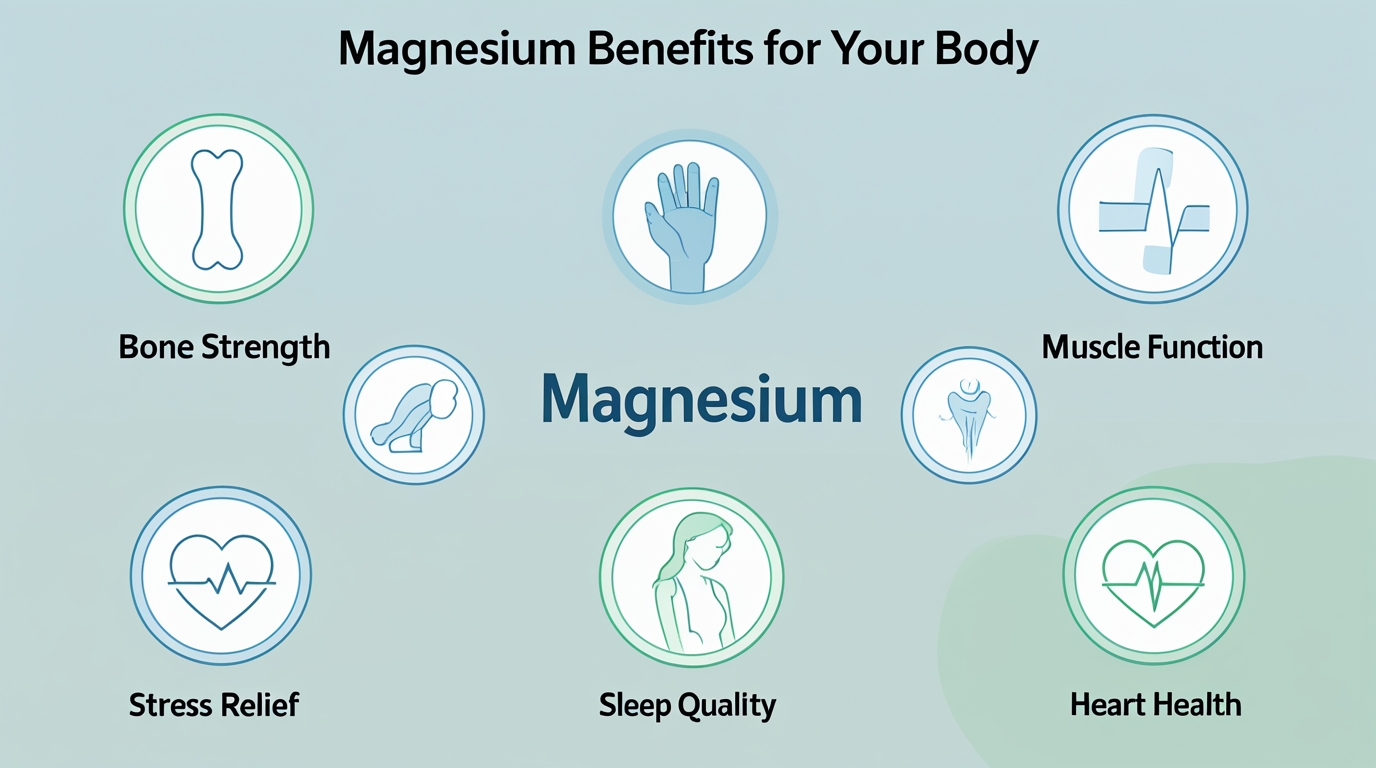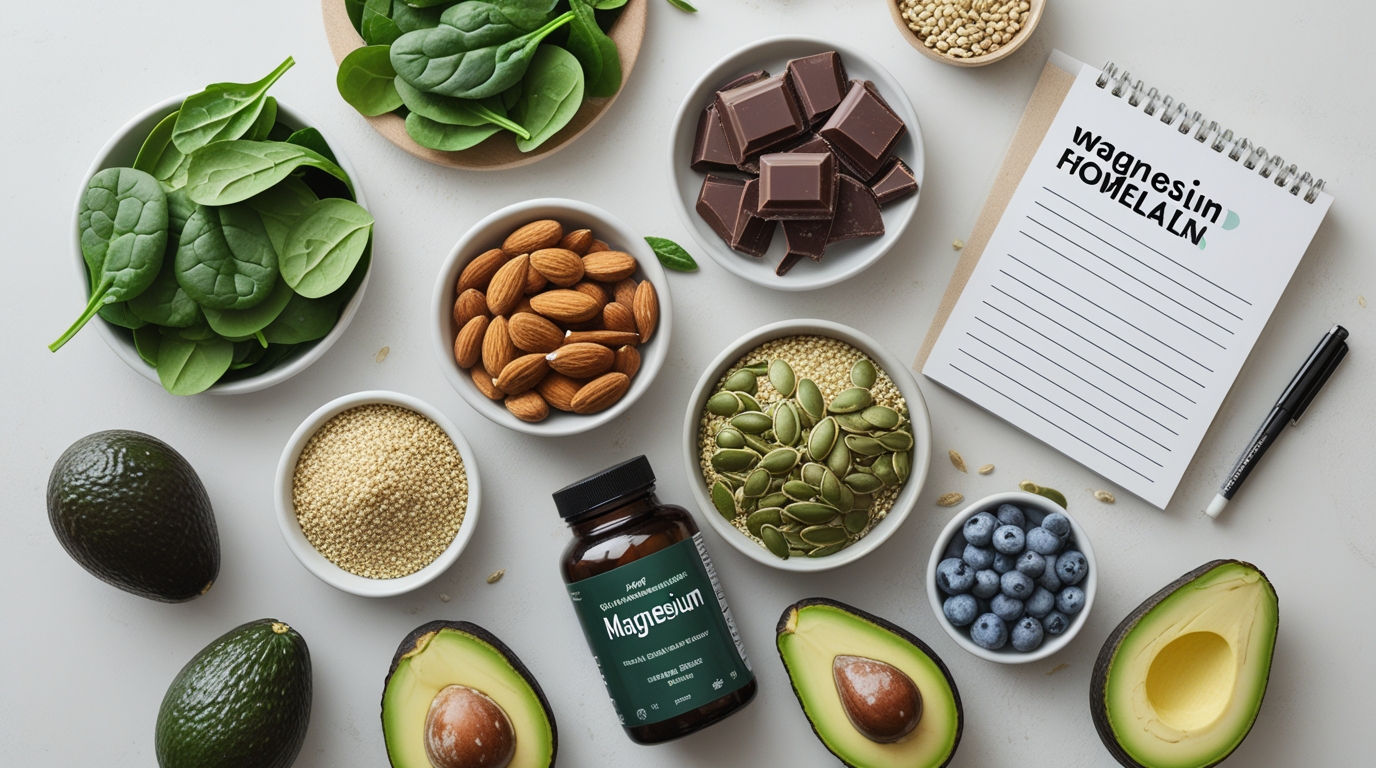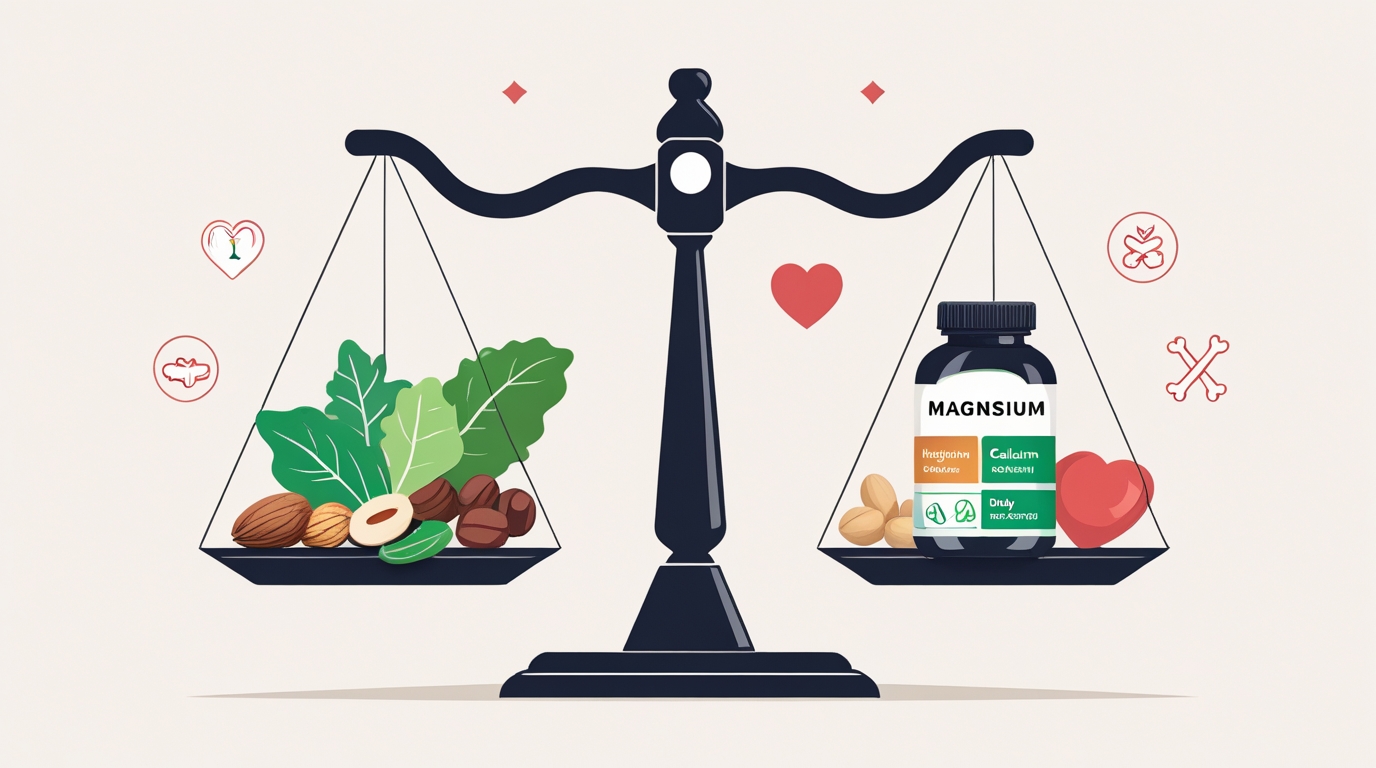Magnesium is a vital mineral that supports over 300 metabolic functions in the human body. Despite its significance, it is often overlooked. The wide range of magnesium benefits includes supporting bone health, regulating sleep, and aiding muscle and nerve function. Surprisingly, magnesium deficiency is highly prevalent, especially in the United States. This comprehensive guide explores its advantages, dietary sources, signs of deficiency, and supplementation, helping you make informed choices for your health.
Why Magnesium Benefits Matter for Your Health
Magnesium is involved in a wide variety of physiological functions:
- Helps convert food into energy
- Regulates muscle and nerve function
- Maintains healthy blood pressure and glucose levels
- Supports DNA synthesis and bone strength
Fatigue, sleeplessness, anxiety, and cramping in the muscles are all consequences of low magnesium levels. It’s particularly crucial for people on restrictive diets or those who are under stress.
Related: Magnesium Deficiency in the United States
Common Signs of Magnesium Deficiency and Magnesium Benefits
Magnesium deficiency often goes unnoticed because symptoms can be subtle. Watch for these signs:
- Muscle twitches and cramps
- Fatigue and weakness
- Mood changes, including anxiety or irritability
- Sleep disturbances
- Osteoporosis or weak bones
Severe deficiency can even lead to abnormal heart rhythms or seizures.
Related: Magnesium for Women: Why It Matters
Best Food Sources of Magnesium
Consuming foods high in magnesium is the best way to maintain healthy levels. Some of the top sources include:
- Spinach – 157 mg per cup
- Pumpkin Seeds – 168 mg per ounce
- Almonds – 80 mg per ounce
- Avocados – 58 mg per fruit
- Dark Chocolate – 64 mg per ounce
- Black Beans – 120 mg per cup
- Tofu – 53 mg per 3.5 ounces
- Bananas – 32 mg per medium banana
- Whole Grains – Brown rice, oats
- Yogurt – 42 mg per cup
Related: Magnesium-Rich Foods in the United States
Magnesium Supplements: Do You Need Them?
While food is the best source, supplements are useful if you’re deficient. Common forms include:
- Magnesium glycinate – gentle on the stomach, best for sleep and anxiety
- Magnesium citrate – good for digestion
- Magnesium oxide – higher dose, less bioavailable
🛒 Shop High-Quality Magnesium Supplements on Amazon
Related: Best Time to Take Magnesium for Sleep and Stress Relief
Magnesium vs. Calcium: Striking the Right Balance
There is a connection between calcium and magnesium. An imbalance can result from having too much calcium and not enough magnesium.
- Magnesium helps regulate calcium absorption.
- The ideal ratio is between 1:1 and 2:1 (calcium: magnesium).
Related: Magnesium vs. Calcium
Who Needs Extra Magnesium?
You may benefit from increased magnesium intake if you:
- Are you pregnant or breastfeeding
- Have digestive issues like Crohn’s or IBS
- Take diuretics or proton pump inhibitors
- Are an older adult
- Suffer from diabetes or insulin resistance
Always consult with a healthcare provider before starting supplements.
Lifestyle Tips for Boosting Magnesium
1. Exercise Regularly – Physical activity improves nutrient absorption
2. Reduce Alcohol Intake – Alcohol interferes with magnesium balance
3. Stay Hydrated – Supports overall nutrient transport
4. Limit Processed Foods – These are usually low in magnesium
5. Combine with Vitamin D – Enhances magnesium absorption
FAQs About Magnesium
Q1: Can magnesium help with sleep?
Indeed, magnesium glycinate works particularly well to enhance the quality of sleep.
Q2: Is magnesium safe to take daily?
Yes, as long as it stays within the suggested range of 310–420 mg daily, which varies by age and sex.
Q3: Can I get enough magnesium from food alone?
A lot of people can, however, those who have problems with absorption might need to take supplements.
Q4: Does magnesium help with anxiety?
Magnesium may lessen anxiety symptoms and strengthen the nervous system.
Q5: What’s the best time to take magnesium?
Taking magnesium before bed is ideal for sleep, while morning or afternoon works best for stress relief.
Conclusion: Prioritize Magnesium Benefits for Better Health
Magnesium is vital for your well-being. The magnesium benefits include reducing stress, supporting bone strength, and improving sleep and nerve function. To enjoy these benefits, start by incorporating magnesium-rich foods into your daily meals. If your diet falls short, consider high-quality supplements. For more details on recommended intake and evidence-based benefits, visit the NIH Magnesium Fact Sheet. Consistency is key—make magnesium a regular part of your wellness routine.
Call to Action
Don’t wait—prioritize your magnesium intake today. Share this article with family and friends, and browse top-rated supplements on Amazon.
Disclaimer
This article is for informational purposes only. Always consult with a healthcare provider before starting any new supplement, especially if you have existing health conditions.
Written by FitFusionBlogs — Your trusted source for wellness, fitness, and nutritional advice tailored for American lifestyles.



